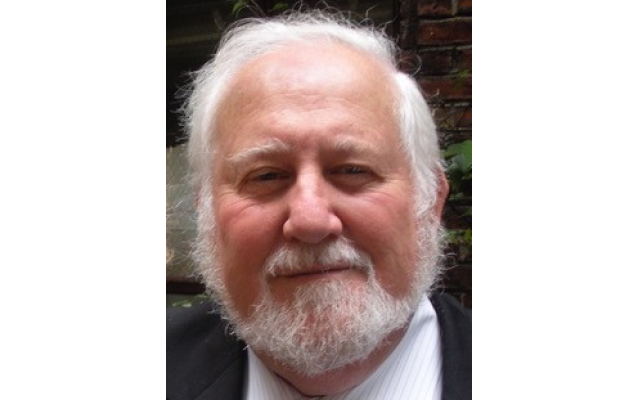Rebbe Gelt
Allen H. Lipis discusses "rebbe gelt," a saying he first heard decades ago to describes lessons learned through mistakes.
I was at kiddush after the synagogue service when a friend approached me about the article I wrote, “This Too Will Pass.” He liked it and it reminded him of his son, who lost money on a deal, accepted the loss and moved on. He then found a bigger deal that paid off handsomely. To respond to the lost deal, the words, “rebbe gelt,” popped out of my head. I hadn’t thought of that remark for decades, so we discussed exactly what rebbe gelt meant. It translates to money you give to the rabbi, but what it really means is that it is a small price to pay for a significant learning experience. The son learned from his failure and succeeded the next time. That failure is rebbe gelt. Expressions like this in Yiddish have meanings way beyond their exact translation.
I hadn’t thought about rebbe gelt for decades, but the thought reminded me where I first heard it. It was from my father when I was in college. I had lost some money, I don’t recall exactly how, perhaps trying to win a prize at the amusement park in Coney Island. He had worked there, where you win a prize by paying to break a balloon with a dart or by throwing a wooden ring on a Coke bottle. He knew these were guaranteed ways for the public to lose money. My father said it was rebbe gelt, a small loss that would provide a big lesson. I can say this with certainty. I don’t spend my money foolishly at amusement parks, and I count my money from the bank every time.
I heard the expression rebbe gelt once more from my father when his wallet was stolen trying to board a Greyhound bus in Philadelphia on his way home to New York. After coming with my mother to the University of Pennsylvania to see me teach a class there, and then visiting with my wife, my mother and father were in a tight crowd trying to board the bus home. During the pushing to board the bus, someone picked his pocket and a few dollars were gone. There were no credit cards at the time, so the only thing really important in his wallet was the money and it wasn’t much. He never lost his wallet again.
The best teacher is failure. It focuses the mind, and it is a memorable experience. We all remember the failures we have had. Fortunately, we learn from our mistakes, and we make many of them. It reminds me of a story a reporter once told.
A reporter asked a bank president,
“Sir, what is the secret of your success?
“Two words.”
“And, sir, what are they?”
“Right decisions.”
“And how do you make the right decisions?”
“One word.”
“And, sir what is that?”
“Experience.”
“And how do you get experience?”
“Two words.”
“And, sir what are they?”
“Wrong decisions.”
I have often reviewed the decisions I made throughout my life to evaluate whether they were correct or not. I went to Iowa State University when I had other choices. My wife and I stayed in Atlanta when I had a significant professional opportunity to return to New York City. We sent our children to Jewish day schools even with the complaints we heard from our kids. We stayed in the Toco Hills area of town when we could have moved to Buckhead or Norcross or Sandy Springs. I am always reminded of the famous poem by Robert Frost called, “The Road Not Taken.” You never know about that road not taken, and while it is fun to speculate, you will never know.
I am reminded of a remark by Jay Mehaffey, which I was told at a reunion with my staff about a decade ago. He said with respect to life, “No regrets.” Don’t try to second guess yourself. You make the best decisions at the time with the best information you have, and don’t look back. I think we will all be better off if we reviewed our life with no regrets. It’s a positive way to be. We Jews believe that whatever happens is all for good.
The bottom line: If you’re a pessimist, you’ll never be disappointed.




comments